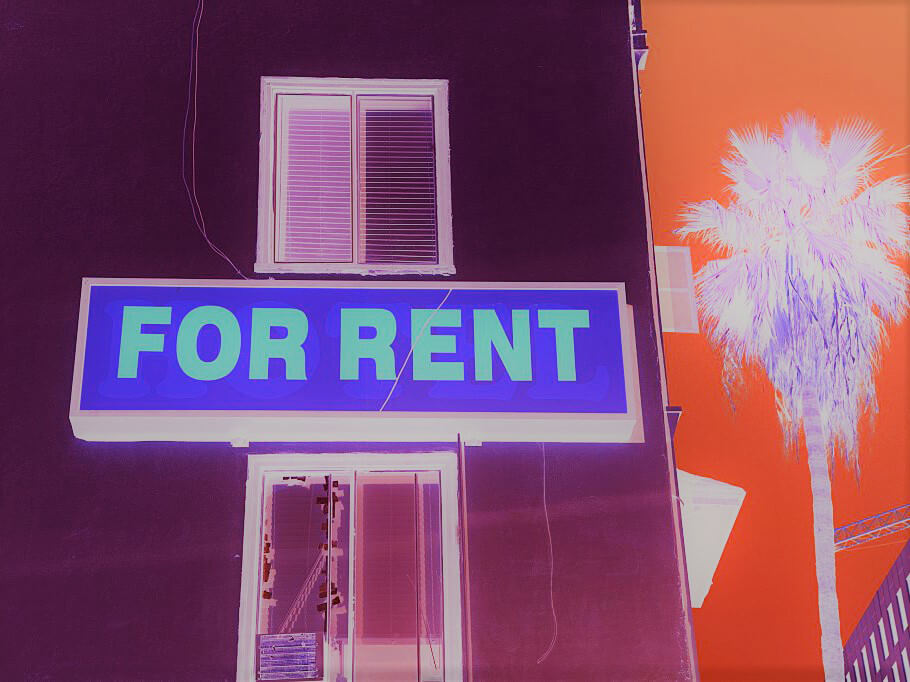Nov 19, 2019 Property
A government that really needed to be seen doing something about housing has finally announced the bulk of its rental reforms to some decent fanfare. It’s a significant set of changes, but community lawyer Joe Nunweek questions whether they’re the right ones in 2019.
You wait for a bus and then four come at once. The coalition Government has stayed coy on its indications that it was going to dramatically overhaul what it meant to be a renter in New Zealand for years now, and the day’s finally here.
It hasn’t been all quiet. They announced they’d kill off letting fees, and this February, the government announced the healthy homes standards, a set of minimums for heating, ventilation, and drainage. But those compliance deadlines haven’t kicked in yet. Your ordinary person on the street – possibly coming or going from a perpetually damp house that they had little to no security of tenure over – could be forgiven for not thinking anything had changed.
Now, with an election due in 2020, a new raft of proposed changes got rolled out with precious little notice this Sunday past. It’s a bit like the way we get surprised by high-profile album releases and prestige TV premieres now – at first you’re elated it exists at all, and it’s only once that elation wears off that you start to realise it’s got some pretty weak bits.
But let’s start with the good, of which there’s a fair amount on first spec. It looks like renters will be able to make minor modifications to their home, which a landlord can only refuse on certain, specified grounds – if it poses a health and safety risk, for example, or would need legal and planning consents (i.e. it’s not minor). The examples show some clear, New Zealand-based thinking – securing your bookcases in the event of a quake, installing curtains for added thermal comfort.
I assume it’s not meant to be exhaustive but, for the avoidance of doubt, I’d like to see the eventual law provide a list of things which are always reasonable minor modifications. These could include accessibility rails in places like showers, and the ability for family violence victim-survivors to put a camera or other security measures up for safety (more on family violence later).
Also good, even great – the government is ending its long and disgraceful run of subsidising the country’s largest national tenancy blacklist, a pathological dedication to uploading virtually every order the Tenancy Tribunal made unredacted, and letting the types of people you’d expect (agents assessing a prospective tenant, but probably a bunch of other stalkers too) search by name for free.
With respect to its adjudicators, most of the Tribunal’s decisions lack either public interest or legal interest in terms of novel developments in interpretation or case law. They state whether there was too much grout left in the bathroom tiles and whether getting the grout out cost $570.00. They were used by some landlords and agents not just to locate the ever-popular bad tenant stories where someone had really trashed a place, but anyone else (like you, if you fought back on an unreasonable bond claim, or your landlord letting themselves in as they liked) who’d stood up for themselves in a Tribunal environment.
Redacting these decisions is a fine bit of thinking and listening in terms of policy, but the question of renter information and how it’s held goes wider, and this points to the extent to which this parliamentary term’s work on renting laws has happened in a bit of a silo. There are already some real Wild West private databases out there – as this Stuff article describes, they upload people’s photos and include subjective information on “tidiness” and “courtesy to neighbours”. Your mileage on this may vary, but as someone who recently copped stick for sanding furniture in the backyard at 4pm on a Saturday, I can attest that my rich, fountain-owning neighbour would love me to see me unable to rent ever again.
Now that the government is not (emphasising it again) paying for a commercial-use database, agencies are likely to develop even more alternative systems. As in Australia, those commercial databases should be under prescriptive regulations as to what is stored, how long it stays up, and how it can be vetted. It’s the sort of thing where the Office of the Privacy Commissioner should have been involved in discussions, and there’s no indication that it was.
Also welcome: as a regulator, the Ministry of Business, Innovation and Employment is going to have a two-tier process of on the spot infringement fines (for stuff like failing to lodge a bond, I imagine – not the worst of the worst, but there’s really no excuse). On the other and, the amount awardable for exemplary damages and criminal offences will increase. Most (though by no means all) readers of an article like this may not realise how intimidating, unsafe, and precarious the most desperate end of the private rental sector can be, particularly boarding houses. Steep compensation orders and penalties have their place, and I’m confident neither MBIE nor the Tribunal will be doing so lightly – the point is that they can, and have the resources to do so if they need.
But none of this is worth much if your tenancy is fundamentally at risk. No reason notices to vacate a property have persisted in our rental laws even as we’ve fought to largely eliminate them from the employment relationship, and secured households from a hard cutoff of utilities without safeguards. Shelter, energy and livelihoods matter if we are to survive, and shouldn’t be taken from us abruptly.
In removing the no reason notices, the government is doing away with an arbitrary form of eviction that plenty of us have fretted about in the abstract, but that fell most oppressively on the most vulnerable – people with mental illness who might use the wrong tone with their landlords, people who asked for their rights and lacked the capacity or education to fight a retaliatory letter to move on. They’re a form of structural violence, and I humbly suggest mouthpieces who claim they’re never used inappropriately are liars, sadists, or some combo thereof.
Those mouthpieces (who I remain convinced aren’t representative of all landlords) were never going to be happy with anything that redressed the playing field significantly, threatening that tenants were going to become virtually impossible to evict. As an act of compromise, the government has introduced two new grounds to terminate a tenancy. One, a sort of three strikes process for antisocial behaviour, desperately needs to be fleshed out (given you can terminate a tenancy now for assaulting or threatening to assault a landlord or neighbour, or for doing substantial damage to the joint, I’m not sure what ‘antisocial behaviour’ would constitute. Maybe it would provide a way for a landlord to deal with this lady who aggressively set a bathtub down in her backyard).
The other will let a landlord apply to the Tribunal to terminate a tenancy if the tenant is more than 5 working days late, three times, within three months. Never mind that 44 percent of New Zealanders don’t even have enough money saved for a month if they lose their income; never mind an untempered and growing gig economy environment where people see week-to-week shifts in income in low-skill, low-wage work; never mind that rents in our major cities are now growing twice as fast as wages; never mind our sustained low benefit levels. Some landlords will show patience and restraint and won’t just use a ground to terminate because it’s there, but others won’t. This government just created an additional avenue for working families to be made homeless as a sop.
The fallback (seemingly along with the right to have pets, which has mysteriously fallen by the by) hasn’t worked. The NZ Property Investors Federation is insisting 50,000 landlords will sell 100,000 rentals overnight. It’s hard to see what could be bargained down on the government’s list should they not simply call the bluff.
The capitulation on eviction for late rent, and the failure to recognise the associated social issues that make it a genuine and pressing risk shows that this is reform with a very narrow scope. Housing precarity and homelessness appear to have been considered separately to questions of work and social security; as I’ve mentioned, they’ve been considered separately to privacy and discrimination law reform too.
What about the safety of women and children? In September 2018, the government announced a joint venture model to deliver an integrated, whole-of-government approach to family and sexual violence, but there’s no sign that this has been factored into reforms affecting those who both rent and experience either in terms of effective mechanisms at the Tenancy Tribunal level (for more on this, and case studies on why it matters, please have a peep at the appendix of this submission I wrote last year).
There was a time – before rents and house prices in New Zealand went thermo-nuclear before inter-departmental approaches were fashionable and easily coordinated – when the reforms as introduced would have been among the best in the Anglosphere. As it stands, simply concentrating on piecemeal aspects of pure tenancy law may no longer be enough. The proposals lag behind some of the recent changes in Victoria and Scotland, and seem positively timid in a time when places as unlikely as California are passing ordinances on rent control. The government has dropped the greatest tenancy reforms of 1999. Many renters living in 2019 might have hoped for something more.






